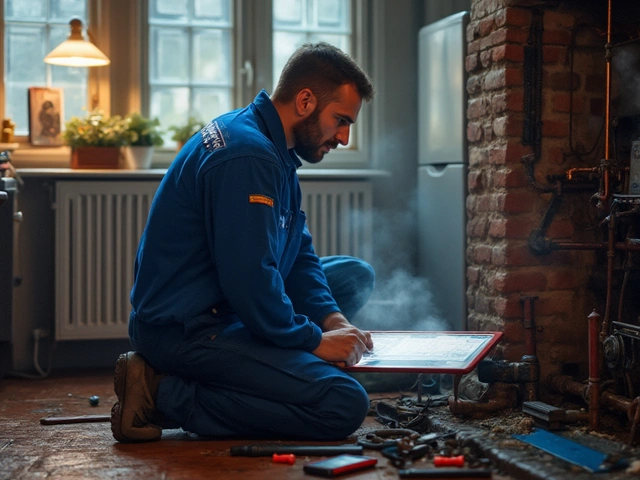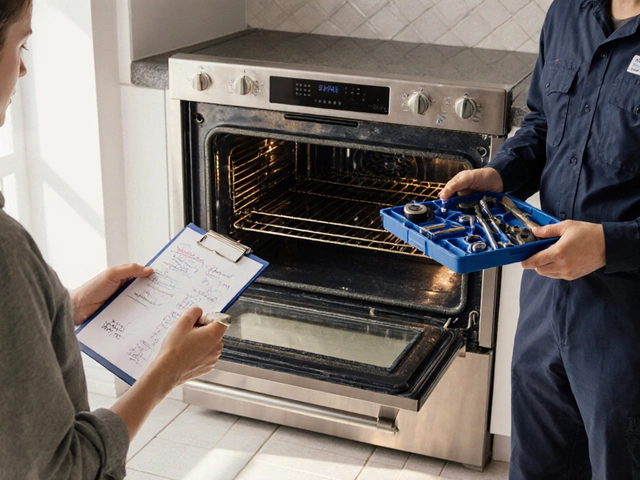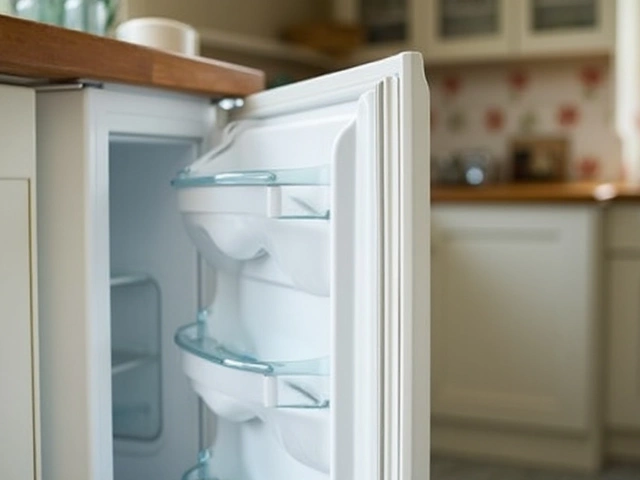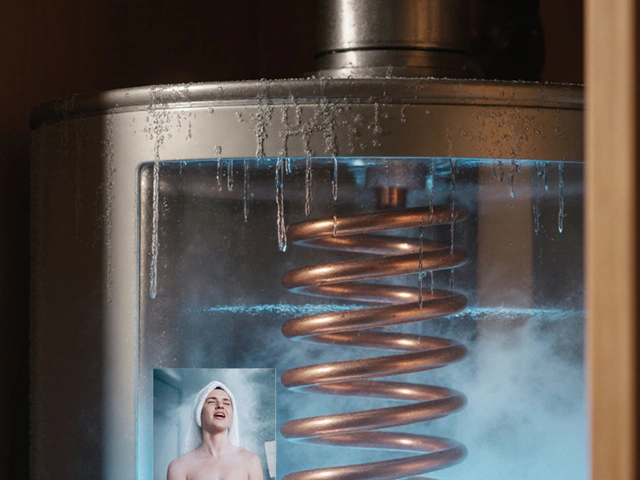The gas hob often serves as a workhorse in the kitchen, tirelessly helping to prepare meals for family and friends. However, like any appliance, it has a limited lifespan. Knowing how long you can expect your hob to last can save both time and money spent on replacements.
Yet, the true secret to extending the life of your gas hob lies not just in periodic checks, but in everyday care. From proper cleaning techniques to recognizing signs of wear, understanding these elements can make a big difference.
In this guide, you'll find essential information on keeping your gas hob performing at its best. You'll be introduced to typical problems and effective home remedies that can ward off more serious issues, along with advice on when to ring in the professionals for assistance.
- Understanding Basic Lifespan
- Common Issues and Solutions
- Maintenance Tips for Longevity
- When to Seek Professional Help
Understanding Basic Lifespan
Most people are not fully aware of just how durable their gas hob can be when cared for properly. On average, you can expect your hob to last anywhere from 10 to 15 years. This rough estimate depends on several factors, including the frequency of use, the intensity of cooking activities, and how well it's maintained over the years. But let’s not forget that each hob is different; some higher-end models or brands may offer slightly longer lifespans simply because they use more robust materials or technology. While consumers often look for these signs of longevity when purchasing, the real test of durability lies in the everyday usage and handling of the equipment.
A fascinating truth about the longevity of gas hobs is that their sturdiness often correlates with simplicity. The fewer fancy, breakable components there are, the longer they tend to last. A simple design can make a huge difference, as more mechanical parts usually mean more points of failure over time. When Gail Johnson of Kitchen Experts Australia said,
"A well-built hob with fewer technological frills stands the test of time much better than those overloaded with sensitive electronics,”her observations echoed the experiences of many professionals in the kitchen appliance industry. Simple mechanics are less likely to fail, leading to greater reliability and long-term satisfaction with your device.
In considering lifespan, the everyday environment of the hob also deserves mention. Kitchens, with their fluctuating temperatures and exposure to cooking residues, can be harsh on hobs. The subtle damage inflicted over the years from spills, boiling over, and oil splashes, if not addressed, can considerably shorten a hob's lasting power. Similarly, how often the appliance's parts are scrubbed and the kind of cleaning agents used can also change lifespan expectations. Scrutinizing these day-to-day routines is essential for anyone hoping to squeeze those extra few years from their investment. Balancing heavy use with prompt, gentle cleaning can effectively stretch the appliance’s existence toward that upper limit of 15 years.
Interestingly, manufacturers often provide insight into these lifespans, although consumers rarely pay heed until a problem crops up. They might offer guidance based on the materials used in the hob’s construction. For example, cast iron components are lauded for their longevity but may corrode if not dried properly after washing. Stainless steel hobs, on the other hand, are prized for their shine and relative resistance to rust, although they might show scratches sooner. Understanding these material dynamics early helps inform both your choice when purchasing and how you maintain your existing hob.
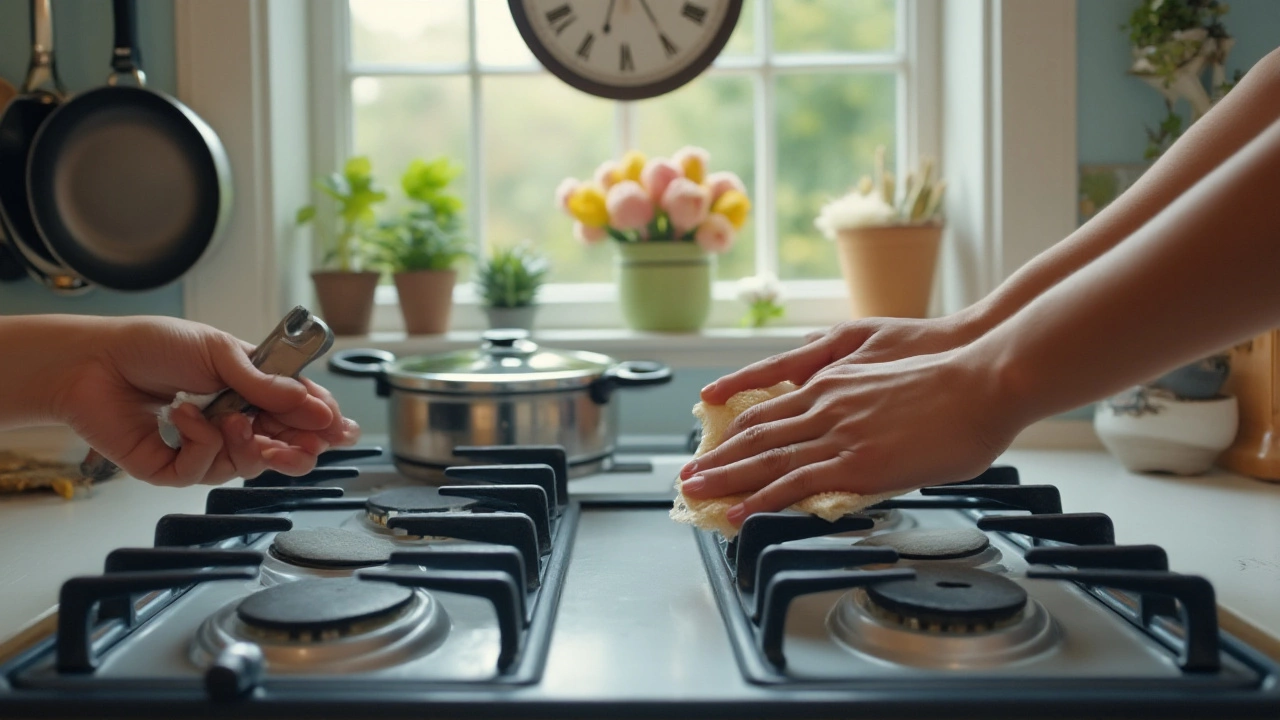
Common Issues and Solutions
Every appliance, including the trusty gas hob, can run into some hiccups. Recognizing these common issues and understanding how to fix them can alleviate a lot of your kitchen stress. One of the most frequent problems users face is the burner not lighting correctly. When you turn the knob, and nothing but a desperate click meets your ears, frustration mounts. In quite a few instances, this issue boils down to a simple case of blocked gas flow. Grease, food particles, and dust can accumulate over time, clogging the tiny openings in the burner.
A foolproof way to solve this is by ensuring regular cleaning. After the hob has cooled down, remove the burner caps and scrub them with a brush dipped in soapy water. A toothpick can be incredibly effective for dislodging stubborn bits from the burner holes. You’d be surprised how often a quick clean can solve what seemed like a major problem. Another issue many encounter is inconsistent flame heights. This often stems from partially blocked gas orifices or air vents. Adjusting the air shutter might bring your flame back to a stable blue hue.
Interestingly, according to a study by the Association of Home Appliance Manufacturers, proper maintenance can extend an appliance's lifespan by up to 11%. So, dedicating time to regular care isn't just about immediate function; it significantly influences long-term durability. Moreover, clicking burners that won't ignite can sometimes indicate a need for deeper component inspections. If cleaning doesn't solve the issue, inspect the igniter for any visible damage. Sometimes moisture can interfere with its spark - letting the unit dry completely before trying again might just do the trick.
"Appliances require maintenance just like our bodies. Regular check-ups can prevent the little issues from escalating into big problems," says Steven Lacook of KitchenPro Appliances.
Next on the list is uneven heating. This can seriously disrupt your culinary creations, leading to hotspots that make cooking evenly quite a challenge. Usually, this is linked to a misalignment between the burners and the pot stands. Repositioning the burner heads and rechecking alignment with the stands can result in a quick fix. In rare but possible instances, faulty gas supply may be the culprit, which will likely require professional help.
Finally, let's not forget the importance of safety. Smelling gas around your hob is not to be taken lightly. A loose connection or damaged seal could be allowing gas to escape. Turn off the gas supply immediately and ventilate the area. For personal safety and peace of mind, it's often best to have a certified technician inspect the system if this issue arises.
While these tips cover several common stumbling blocks, remember: learning your appliance’s quirks and getting hands-on with some basic DIY can be incredibly satisfying. Being observant, patient, and consistent in maintaining your gas hob can lead you to a long, hassle-free appliance experience.

Maintenance Tips for Longevity
Ensuring your gas hob lives a long and healthy life doesn't require a toolbox full of fancy equipment or a degree in appliance repair. Instead, it demands consistency and care, mingled with just a little bit of attention to detail. Regular cleaning tops the list of priorities. After each use, allow the hob to cool before giving it a thorough wipe-down with a soft cloth and a mild detergent. This not only ensures hygiene but also prevents residue build-up. Grease and grime can silently reduce the efficiency of your appliance, making this simple act a foundation for longevity.
Alongside the cleaning regimen, checking for leaks and wear is crucial. Even the best-maintained gas hob can show signs of aging or misuse over time, particularly if seals or connections loosen. A quick routine inspection of the gas connection can preempt many issues before they lead to serious malfunction. It's wise to look for frayed edges or any potential gas odors. In fact, to quote the appliance guru Colleen Scott, "A stitch in time saves nine, and when it comes to maintenance, the cost of prevention is always far less than repair."
Regular small checks save significant resources in the long haul.
But what about the burners themselves? They are, after all, the hardworking centerpieces. To ensure their vitality, regularly use a pin or needle to clear any debris from the small gas-flow holes. Blockages can seriously impact your cooking performance, costing you time and energy. Speaking of energy, efficiency should never be compromised, as it directly influences how long appliances last in a kitchen environment battleground.
Prioritize Professional Service
Attempting DIY fix-ups on complex parts may be tempting, but calling in professional service once a year can add significantly more years to your beloved gas hob. Expert technicians possess the know-how to spot non-visible signs of damage, and they carry specialized tools designed precisely for equipment like this. They can also handle components that are often best left untouched by laypersons. Imagine how much easier it is when someone already ticks all the technical boxes for you!
A quick win: consider installing a range hood if you are yet to do so. The hood significantly reduces cooking odors and moisture, which ensures that your kitchen remains a friendly territory for every appliance, particularly those in constant use. For those aspiring cooks and busy parents among us, proper ventilation can be a blessing in disguise! By cultivating a few simple habits and respecting the lifespan-intentional measures, the heart of your kitchen can beat on reliably.
To sum up, these suggestions require minimal exertion yet yield high returns, bridging the gap between constant wear and use, and reliable operation. Simple actions compounded over time lead to more than just saved costs, they preserve the joy of cooking on a gas hob that feels new. Regular cleaning, periodic checks, and professional servicing lie at the core of ensuring long-term satisfaction and usage, promising to make each cooking endeavor as seamless as the last.
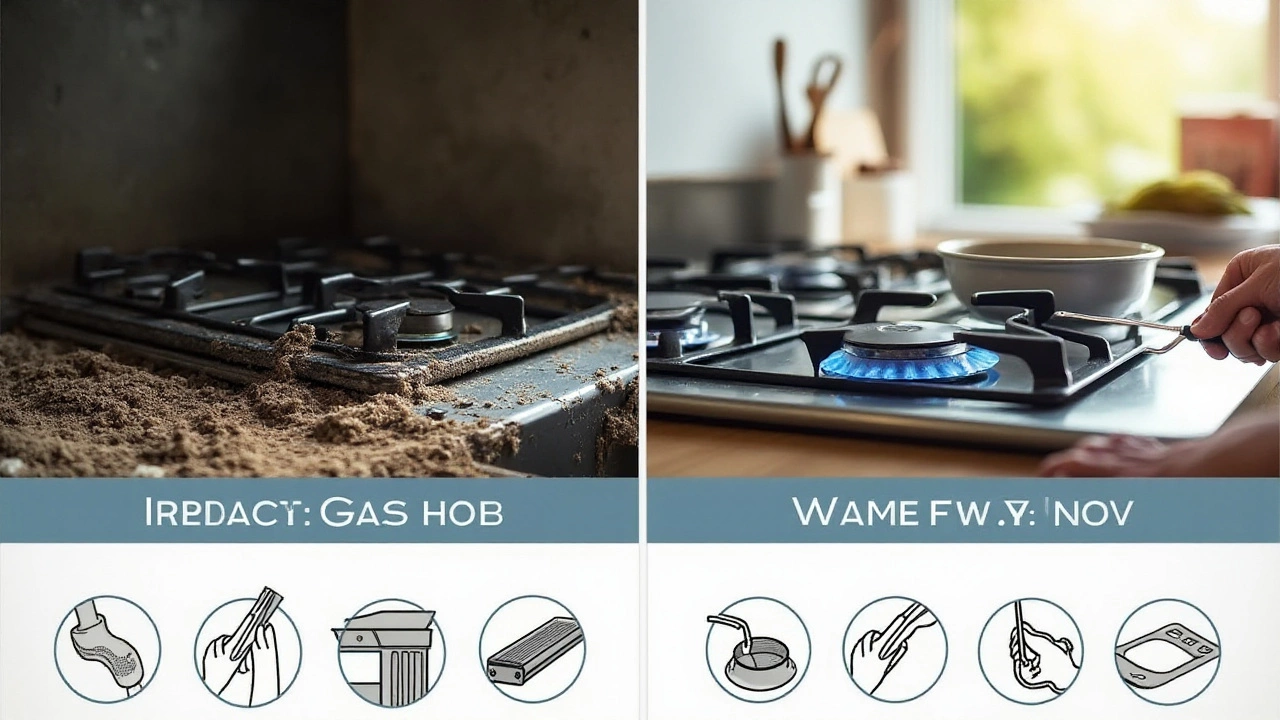
When to Seek Professional Help
Knowing when to call in expert help for your gas hob can save you from unnecessary stress and potentially dangerous situations. While regular maintenance and minor repairs can often be handled with a bit of elbow grease and a handy toolkit, certain signs are red flags for needing professional assistance. For instance, if your hob is giving off odd smells—particularly the pungent odor of gas—it’s vital to switch off the gas supply immediately and contact a certified technician. Gas leaks aren’t just dangerous; they are an emergency, and prompt action is crucial to ensure safety. Additionally, consistent issues with the flame, where the burner produces an odd color or keeps going out, may indicate an underlying problem with the gas supply or internal components that require a professional’s touch.
Electrical faults with ignition switches are another warning signal. If you notice persistent sparking or the igniter not working at all, it could be a sign of worn-out wiring or part damage. Attempting to fix these issues without proper training could not only void your warranty but might lead to further damage or risk of electrical shock. A professional has the right tools and experience to manage such repairs effortlessly. Moreover, repairs on gas appliances must often comply with specific regulations and standards to ensure safety, something only knowledgeable professionals can guarantee.
Evaluating Repair vs. Replacement
Sometimes, a professional will help you determine whether constant repairs are worth the cost or if a replacement could be more economical in the long run. Older hobs, especially those past the average lifespan of 10-15 years, might not be efficient anymore. They might consume more energy or cause repeated problems. A general rule of thumb often quoted is to consider replacement if the repair cost is more than half the price of a new hob. Engaging a professional early ensures you have all the necessary advice and options laid out for you.
"Professional intervention not only addresses urgent issues but often prevents further complications that DIY solutions might overlook," advises kitchen appliances expert Michael Rand from Appliance Service Review.
Finally, getting an annual safety check from professionals can be a wise precaution. They can inspect for potential issues that might develop into major concerns, providing peace of mind and prolonged hob health. Remember, a certified technician will perform these checks accurately and legally, ensuring your home's and your family’s safety.
Key Indicators for Professional Assistance
- Persistent ignition problems and sparks indicating potential electrical faults
- Strange gas odors or suspected leaks, necessitating immediate service
- Inconsistent flame or burners malfunctioning frequently
- Aging appliances showing signs of decreased efficiency
It's crucial not to ignore the subtle signs of trouble and make sure your beloved kitchen ally, the gas hob, gets the expert care when it truly needs it.

